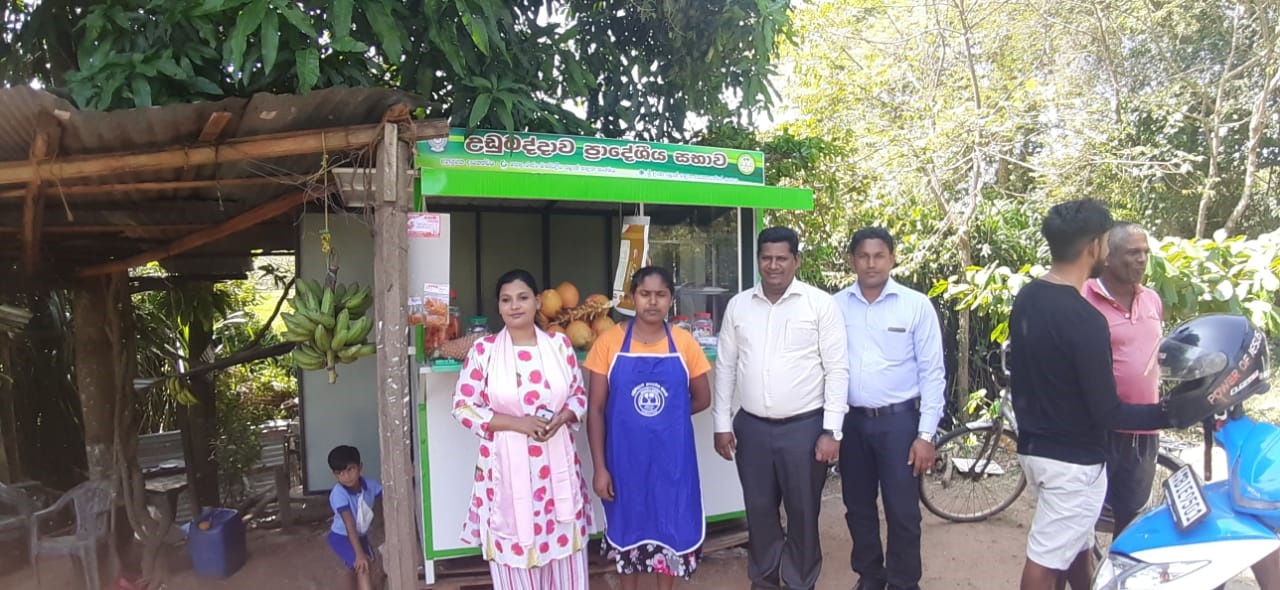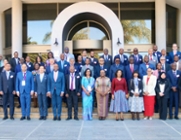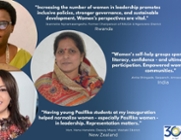LED in the time of COVID

30 July 2020
A constant priority for local government everywhere, local economic development was the focus of the sixth webinar in the series of Sustainable Urbanisation events, this time, against the backdrop of COVID-19.
With the COVID-19 pandemic resulting in the greatest economic shock seen by Commonwealth nations in peacetime over the past century, governments throughout the world have had to manage the fine balance between public health and safety of their citizens, against economic collapse. Small island states have been badly hit by the impact on tourism, while others have seen their major export markets collapse overnight. Many countries have lost substantial foreign currency reserves, with diaspora remittances reducing; and very few industries have been spared, with a contraction in both the formal and informal economic sectors.
Impact on income and basic services
To look at the implications for city and local governments, the impact on income and basic service delivery, CLGF convened a panel of experts from across the Commonwealth to explore the issues. CLGF Secretary-General, Dr Greg Munro, facilitated the dicussion, telling webinar participants that it is unlikely that revenue streams will return to normal in the medium-term and added that many industries driving local economies may never recover to pre-pandemic levels. With the fiscal decentralisation models currently in place in most countries of the Commonwealth, this will impact heavily on local government’s long-term capacity to ensure access to key services in local communities.
Transforming Freetown
Opening the discussion, Mayor Yvonne Akki Sawyerr, from Freetown, Sierra Leone described COVID-19 as a pandemic beyond all others, with cities playing a key role in tackling the virus. Freetown is a city with a population of 1.2 million and much informality – in housing, employment, transport, with much rural/urban migration over the last 20 years. The city has 68 informal settlements and more than 8000 people per square km. As the virus is airborne, physical distancing is paramount and this, she said, is most challenging in a city environment with the pandemic quickly moving from impacting the health sector, to seriously affecting the economic sector. Washing hands, social distancing and wearing masks are much more difficult in a city of many people and much informality. Mayor Akki Sawyerr said that the work to tackle the virus was seen as a continuation of the work already underway in the city under the Transforming Freetown initiative, but with three new elements: 1) Behavioural change – using trusted voices of tribal heads and community leaders to communicate and address a lack of information and the prevalence of misinformation, going door to door; 2) Behavioural changes in services, including water supply systems and the introduction of more urban farming; and 3) Isolation and contaimination support, with the city partnering with central government to distribute food and establish a community care centre to provide isolation facilities for the informal sector.
Community based economic development
Kanyiso Walaza from the Department of Cooperative Governance and Traditional Affairs (COGTA), South Africa, talked about the important role that LED has played in the Government’s response to the crisis. He explained that local government can be at the centre of driving economy. For example, it is local government that issues work permits and therefore knows who is doing business. Having community-based economic development is vital to the recovery.
Resilience is vital
Mr Dmitry Pozhidaev, UNCDF's Regional Adviser for Southern and East Africa, talked about the opportunities the pandemic provided to rethink LED and ensure local economic resilience. He described the negative impact on international supply chains and stressed the need to use local resources. While it is important to be sustainable and green, resilience is vital and, in the COVID-19 recovery, he said we need governments to be entrepreneurial, able and competent with free markets.
Poverty and social inequality
Dr Eris Schoburgh from the University of West Indies explained that urbanisation is the reality in many small island states and, increasingly, local economic development is a function of cities and towns in the Caribbean. There have been very few deaths across the region because the pandemic has been well-managed, but poverty and social inequality continue to be the two critical issues. All islands that have local government are making good reforms. She said that we must look at city governance and demand more developmental leadership, which understands the role of cities, particularly secondary cities, in fostering growth and leadership, required to drive them forward.
Informal and private sector collaboration vital
Mr Md Abdul Hannan, Advisor at Federation of Bangladesh Chambers of Commerce and Industries (FBCCI), and to the UN Secretary General’s Central Emergency Response Fund Advisory Group, said that economic development is a key pillar of sustainable urbanisation and that the covid-19 crisis has exacerbated the need for sustainable local economic development. He explained that 80% of Bangladesh’s economy is in the informal sector. He stressed the importance of the private sector as a critical partner in the delivery of sustainable urbanisation and the recovery from Covid-19; and the great need for the informal and private sectors to work more closely.
Social enterprise start-ups tackling pandemic
Mr CK Tiwari of the Jabalpur Innovation Centre, India said the nature of startups meant that they promoted a circular economy and, since the outbreak of the pandemic, they have been focusing on assisting local and central government in tackling COVID with enterprises which relate to promoting and facilitating social distancing, hand washing etc. More support was being given to social enterprises, with the normal nine month period at the incubation centres being extended to 12 and 15 months for social entrepreneurs. He stressed the need to empower local government bodies and provide training in disaster management. He also called for more involvement of SMEs in promoting business and greater collaboration.
Informal sector is the solution
Professor Alison Brown from the University of Cardiff and also Editor of the CLGF Journal of Commonwealth Local Governance said we need to look at LED in terms of the local community and think about the short-term, with cash grants and small scale initiatives that could really help, like PPE and hand sanitisation stations. There is an issue of getting children in the informal sector back into school, as these are often informal schools. As well as looking at the opportunities in relation to climate change, she said it is vital to foster a stronger relationship between local government and the informal sector and to see this sector not as the problem, but a part of the solution.
Concluding the session, Dr Munro thanked participants. Whatever the outcome of the COVID-19 pandemic, the future is going to be very challenging. Yet this could also represent an opportunity. An opportunity not to strive for a return to old ways of approaching our economies, finances and services. It is a time to reimagine how we structure public finances; how we cope with global development challenges at a local level; how we invest in renewable and sustainable economic drivers; how to make doing business locally easier and more inclusive; and how to invest in our environment in a way that also stimulates our economies. Is the New Normal one where cities and local government are at the heart of our economies, development responses and the creation of more inclusive resilient communities?
key messages
- Recognition that ensuring local economic development and local economic resilience is critical for sustainable urbanisation. Covid-19 has in many ways emphasised further the importance of the “local” in local economic development.
- Women have been disproportionately affected by the impact of Covid-19 and it is important to take practical steps to ensure local economies are inclusive and support/incubate small and medium sized businesses, women-led businesses, and entrepreneurs.
- Local economic development should be seen as integral to national economic development plans and strategies.
- 61% of all employment globally is informal, it is important to integrate the formal and informal and to do no harm. Better data and a good understanding of local economies will allow cities to more effectively support and enable LED with the objective of leaving no one behind.
- Healthy, safe cities, with access to public transport, and basic services such as waste, energy, sanitation and water are all key functions of the city which support and enable economic development and make cities and towns places where business wants to invest.
- It is important to build meaningful partnerships between all actors in the city to support local economic development and this must include the private sector – local economic development is about understanding and using all the resources in a place, and collaboration is key to maximising benefits.
- Developing investment ready projects and linking them with accessible and cost effective finance is central to this and ensuring sustainable urbanisation.
- The Commonwealth has the potential to serve as a convening force and can work at a policy level, but also mobilise the necessary multi-level, inter-disciplinary, cross-sectoral collaboration required to achieve sustainable urbanisation
- City leaders play a crucial role and local economic development, with a strong focus on local citizens’ priorities, should underpin the post-Covid recovery in cities and towns
- Sustainable and inclusive local economic development must be part of the Call to Action.
Join us at more Sustainable Urbanisation events
The Sustainable Urbanisation and Local Economic Development in the context of COVID-19 webinar is part of the Commonwealth Sustainable Urbanisation Online Programme. As part of the preparations for the 2020 Commonwealth Heads of Government Meeting, that was due to be held in Kigali, Rwanda in June, CLGF has partnered with the Association of Commonwealth Universities, the Commonwealth Association of Architects and the Commonwealth Association of Planners, with support from The Prince’s Foundation, the Rwandan Ministry of Infrastructure, the Ministry of Local Government, the Commonwealth Engineers Council and others, to develop a call to action on sustainable urbanisation in the Commonwealth, incorporating some of the lessons learned from this series of events.
More information about the full programme can be found here.
Back to News





